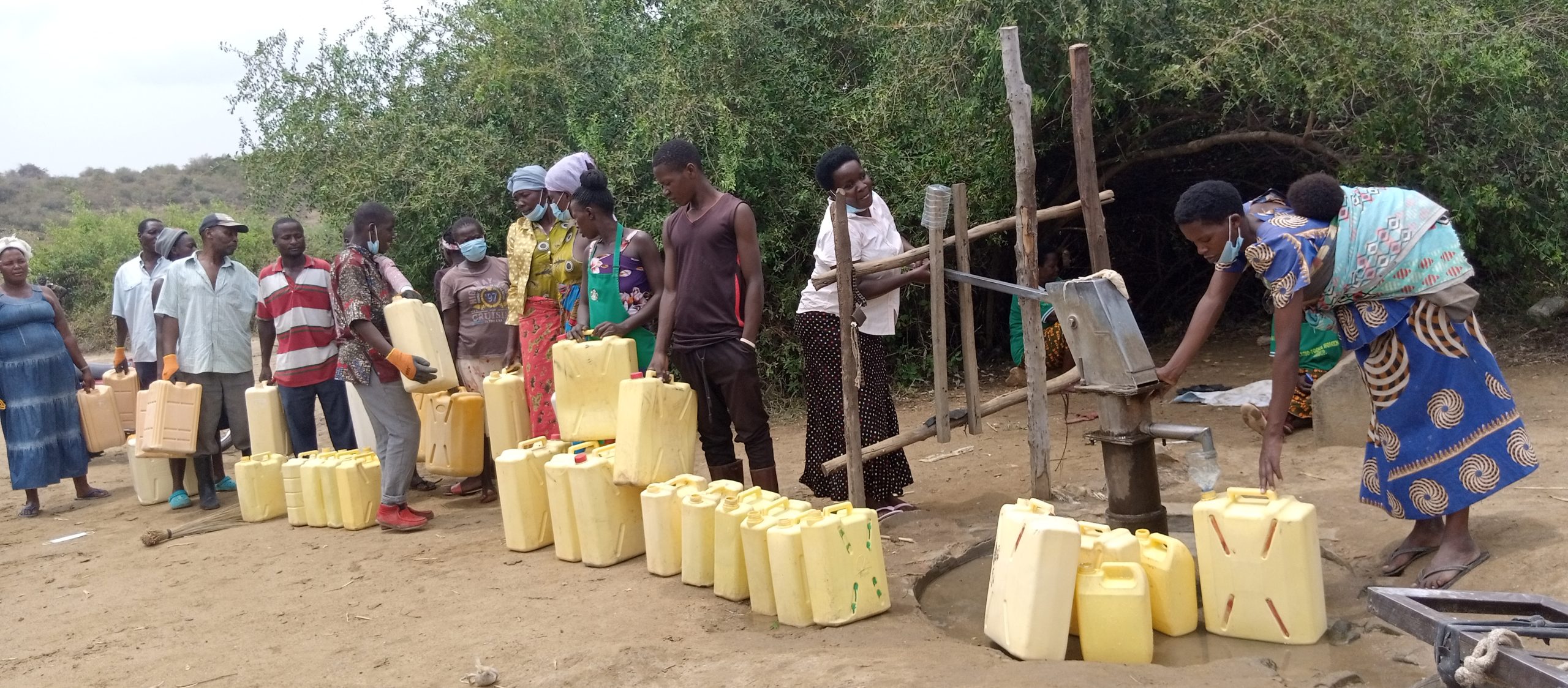Monday, March 28th, 2022 | By

Fishing communities in Kaiso fishing village along Lake Albert in Hoima District, Western Uganda are struggling to access clean water.
Kaiso area LC1 chairperson, Henry Irumba says that Kaiso has about 120,000people that depend on only one bore hole for clean and safe water.
Irumba says those who cannot stand the long queues have no choice but to use the lake which is the main source of water.
He however notes that lake water is not safe as people have turned it into a toilet due to lack of sanitation facilities.
He says the area had only one public toilet that got full and many people, especially new entrants at the shores have no latrines.
“People largely depend on lake water but it’s not safe. One has to be patient on the long queue in order to get clean water. Open defecation is common in the lake as latrine coverage is low. The shores are littered with faeces while other people use polythene papers and throw in the lake” said Mr. Irumba.
The residents say the situation has been made worse by raising water levels that evicted over 250 families from the lake shores and pushed them further in upper areas of community wild life area where they have to trek for over 12 kilometres to the nearest water source.
“And for people evicted by floods, accessing water from either the borehole or the lake has become a night mare. One has to spare a day meant to trek for a jerry can of water,” Mr. Irumba added.
Ms. Sylvia Kemigisa, the chairperson of Kaiso Women’s Group in Kaiso village says trekking long distances for water has affected mainly women who no longer engage in productive work. She says a 20-littre Jerrycan of water at the landing site costs between 1500 to 2000 Ugandan shillings which most households cannot afford
“Women do most of the house chores including collecting water. A woman wakes up very early in the morning to beat the long queues at the borehole. By the time she returns home, it’s already midday and raising 2000 shillings per day for a jerry can or two in unaffordable for women here whose livelihoods were affected by COVID-19 pandemic,” said Kemigisa.
Ms. Kemigisa says absence of public toilet has encouraged defecation in all open places at the fishing site and the residents use polythene bags and later dump wastes in water yet they also use it for home use. There is also a lot of littering on the shores by the community.
As part of the celebrations to mark world water day, the women engaged in cleaning the lake shores while raising awareness on the need to increase safe water access at the shores. They also called upon communities to improve hygiene practices so that the lake water is safe for human consumption.
They were also supported National Association of Professional Environmentalists (NAPE) to appear on Community Green Radio Kiboga to raise awareness on issues affecting them.
Atukwatse Peruth, the program officer for climate change at National Association of Professional Environmentalists (NAPE) says access to clean water is a right to every Uganda.
She says flooding that happened last year on most of the lakes is a clear indicator that climate change is real.
Ms. Atukwatse opines that government needs to prepare early enough for the affected communities and improve access to clean water by constructing boreholes and rain water harvesting tanks as well as adequate sanitary hygiene facilities for the fishing communities, lest a serious disease outbreak awaits these communities.
This year’s theme is celebrated under the theme, “Ground water: Making invisible visible”
Copyright ©2024 Community Green Radio . All Rights Reserved. Designed : Lwegatech